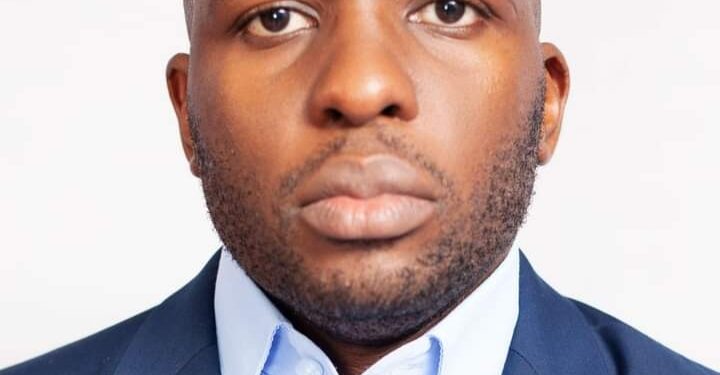As one whose work experience has significantly been with the NGO sector in Uganda and elsewhere on the Continent, I have received a number of inquiries about my thoughts regarding this week’s edition which will shine a spotlight on the NGO fraternity.
For me, the slight irony of the #NGOExhibition is that I am typing these thoughts in an airport departure lounge ahead of a flight paid for by an NGO whose meeting I am traveling to attend all week. I hope I can suppress my biases despite my eternal gratitude for the work experience, skills, knowledge, professional and social networks I have garnered over my short (nine-year) working life so far.
So great has been the degree of public interest in the topic that when it was announced over the weekend, the tweeting began in earnest, and, as of this morning, the timeline was replete with content relating to the hashtag. The good, the bad and the ugly.
For those who might not know, the #Exhibition is a novel brand of online activism initiated by, among others, Dr. Jimmy Spire Sentongo, Godwin Toko, and Agather Atuhaire. Usually lasting a week, the moderators put up a topical issue and invite the public to share its views in whatever format—text, pictures, videos, with a view to holding responsible institutions and individuals accountable.
The past three editions which looked at the derelict state of roads, moribund condition of public healthcare, and the dismal working conditions of our men and women in the security forces were a roaring success as they overachieved their intended/expected results.
Public officials were forced to explain themselves, a few billion shillings were thrown at potholes, and for a few days, it felt like something fundamentally transformative was underway. Ugandans hadn’t felt heard in a looooong time, and it was a giddy, exhilarating moment to see public institutions apparently concerned about citizens’ problems.
As the #NGOExhibition gathers steam, I have observed two broad lines of opinion from amongst my colleagues:
The first one contends that the sector is at its weakest—cash strapped due to economic contraction in the West, fatigued by unrelenting harassment by the political establishment in Uganda, and generally uncertain about the future because of unprecedented political and socioeconomic shifts at the country, regional and global levels.
The above argument holds that regardless of the noble motivations behind it, NGOs are an easy target and it won’t be difficult to whip up fervor, malice, and whatever other ulterior motives there may be about NGOs. Proponents are quick to add that this is not to suggest that the sector is without sin. Their argument is that the medicine of exposure might kill the patient altogether.
They conclude that the #NGOExhibition will be counterproductive, and hurt an already ailing sector.
The second argument avers that the sector should be held accountable. NGOs should not be exempt from the very standards of accountability and transparency they preach. Proposers argue that if we make exceptions to ourselves, it is a slippery slope and there’s no telling how far we will go once we afford ourselves preferential treatment—while at the same time pursuing accountability from public authorities.
It is further argued, in favour of the second argument, that there are so many rumoured, reported, and unreported cases of impropriety and mistreatment that the proper course of action is to provide a platform for these allegations to be published. In general terms, the younger staff corps are markedly in support of this viewpoint, having suffered at the hands of the dinosaurs.
Both arguments are valid, but my personal take is an attempt at nuance. I prefer to look at the situation through the lenses of Charles Darwin’s theory on evolution. Also known as Natural Selection, it is the process by which organisms that are better adapted to their environment tend to survive and produce more offspring.
The harsh reality of this theory is that the least adaptive organisms within an ecosystem must gradually die off and eventually become extinct. Those which adapt to the changes in the environment will live longer and their offspring will be stronger and healthier.
An ecosystem that encourages laziness, weakness, replication of poor gene pools and congenital defects will lead to extinction, but an ecosystem which encourages vibrance and adaptation will guarantee a stronger species. Smooth seas do not make good sailors.
I therefore believe that the #NGOExhibition is just one of the multiple ways through which the sector as a whole can be encouraged to introspect, reflect, evolve, build back better, and emerge stronger.
Dinosaurs would still be in existence today if they had adapted their dietary, migratory, energy use and reproductive patterns to suit this constantly changing planet.
If a sector can die because of a few hundred thousand or a million tweets, then it should perhaps be helped out of its misery and be assisted to die.
For these reasons, the #NGOExhibition is both our tactical and strategic ally. We should muster our capacity for adaptation and use it to clean our house so that we pursue our social justice goals better.
Democracy can sometimes be a noisy, chaotic affair, but we are better for it in the long run.
karamagiandrew@gmail.com
Do you have a story in your community or an opinion to share with us: Email us at editorial@watchdoguganda.com













